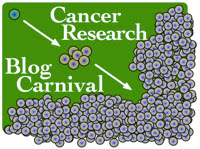 We've previously discussed on the bayblab the fact that bananas are all sterile clones, on the brink of mass extinction with the right pest or disease. Could the durian be on a similar track? Several different clones of the fruit, described by some as 'smelling like cheese and tasting like meat', exist, and scientists in the Thai government have controversially succeeded in engineering the fruit to have a less objectionable odor. Will the more pleasant odor create an explosion in the fruit's popularity, or will purists insist that a durian by any other name shouldn't smell so sweet? We'll have to track some down for a live tasting on the next podcast.
We've previously discussed on the bayblab the fact that bananas are all sterile clones, on the brink of mass extinction with the right pest or disease. Could the durian be on a similar track? Several different clones of the fruit, described by some as 'smelling like cheese and tasting like meat', exist, and scientists in the Thai government have controversially succeeded in engineering the fruit to have a less objectionable odor. Will the more pleasant odor create an explosion in the fruit's popularity, or will purists insist that a durian by any other name shouldn't smell so sweet? We'll have to track some down for a live tasting on the next podcast.Those wanting to eat the fruit, but without the unpleasant taste may want to look into Miraculin. This protein, derived from the fruit of a west African shrub has the unusual ability to not only block the sour receptors of the tongue, but also trick the body into thinking their food is sweet! This little sensory hack could have you winning all the lemon eating contests you want, all the while thinking you're munching on candy. In a world of aspartame and other horrible synthetic sweeteners, miraculin could be a step towards a natural 'artificial' sweetener. Just don't over do it, the effect can last for as long as two hours which could make for some odd tasting steak.

 Podcast
Podcast




1 comments:
It is known that eating artichoke can cause other foods eaten after it to taste sweet (Bartoshuk et al., 1972). This is due to the moities of chlorogenic acid and cynarin in the artichokes (scientific name Cynara scolymus). When these compounds are applied to the tongue, water has a sweet taste afterwards; this taste may be as strong as that of 2 teaspoons of sucrose in 6 oz of water. This effect depends on what is sometimes called the "water taste." Pure water can have a taste, depending on what has been on the tongue just before it.
Post a Comment